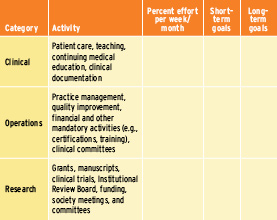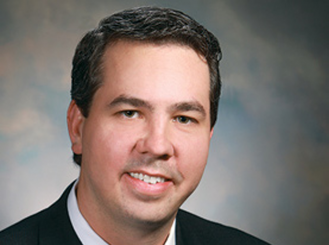Oct 29, 2012
By Ted A. Skolarus, MD, MPH
As an early-career oncologist and health-services researcher, I found that writing this article helped me define important aspects of my evolving career. Understanding that “success” is different for each person, I provide some thoughts about building the foundation for a successful career based on my early experience and the guidance of my mentors.
Be an exceptional clinician
Most physicians entered medicine to care for patients. Therefore, providing the highest quality of care for our individual patients as well as the broader oncology population should be at the forefront of our efforts. Whether from a basic-science, translational, or quality-improvement perspective, we often encounter challenges to providing optimal, patient-centered cancer care. These challenges provide direct insights into the patient, provider, and health system resources necessary to deliver quality care. Thus, seeking to provide exceptional clinical care informs research needs.
In addition, clinical practice provides the context within which to interpret research findings and how these findings apply to patient care. It also allows you to develop operational partners (i.e., colleagues, support staff, local and national leadership) to ultimately transition research findings into practice.
Whether this pertains to rolling out the latest clinical guideline recommendations or your evolving research agenda, operational partners are central to implementing improvements in patient care. Setting an example by delivering exceptional clinical care is the first step toward getting these and other stakeholders engaged.
Develop a mentorship team
I once asked one of my mentors why he still needed to meet with his senior mentor. In my mind, he was well on his way to a successful independent academic and clinical career, so why would he still need these meetings? The truth is that our careers are continuously evolving, and though they seem novel from our perspective, mentors help us navigate our career paths based on their insights and experience. They help us avoid pitfalls so that we can focus on career development. Clinical mentors guide us through challenging patient-care situations and help us grow into exceptional clinicians. Research mentors help us ask the right questions, frame our studies and findings, and safeguard our time to focus on career development. Mentors introduce us to leaders in the field and provide collaboration opportunities for us to evolve our skillsets and network. While there is a service component to the relationship, these are almost always learning opportunities—and finding those mentors who primarily focus on your growth is key.
One of my mentors recently introduced me to the concept of succession planning, indicating that if one truly believes their efforts will make a difference in the long term, they will eventually help train (i.e., mentor) future investigators and clinician leaders to continue along their path. In fact, succession planning is behind the success of many corporations, and, in part, involves:
- identifying those with the potential for increasing responsibility in an organization;
- providing critical experiences for success in these future roles; and
- engaging leadership to support potential leaders through career development.
Although it may take some time to find the best mentors for you, figuring this out is well worth it to solidify the foundation for a successful career.
 |
Understand how you (want to) spend your time
I find that my efforts as an early-career oncologist and researcher can be parceled into three broad categories: clinical, operations, and research. Within each of these categories, one can identify the roles he or she plays, short- and long-term goals, and how much effort is dedicated to each area (see Table). Understanding how your strengths and weaknesses play into each category and your long-term plan may help you manage your efforts. Achieving balance among these categories will likely play a large part in your success.
Keeping your CV up to date, with respect to each of these efforts, documents growing experience as your early career evolves. Reading, writing, and collaboration are essential to develop your local, national, and eventual international expertise and reputation. The latter two are critical to the academic promotion process. Regular meetings with formal and informal mentors can help you understand where to focus your efforts, particularly in times when things might seem overwhelming.
Strike a balance
Balancing these aspects of your career with your personal life is often challenging. Taking time to share life with family and friends is important to maintain your perspective, and it ultimately helps with career satisfaction as well. My mentors often stress that a career is like a marathon, rather than a sprint, a perspective that can help relieve undue stress and refocus efforts. Hopefully this article helps delineate some important early-career considerations to help you in your marathon training.


